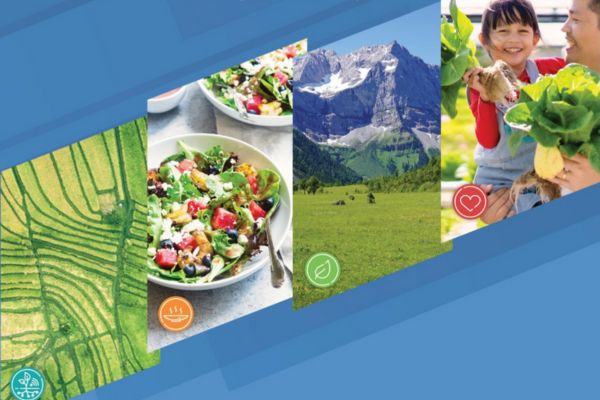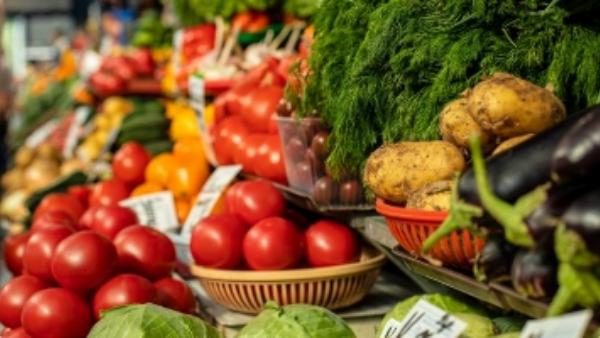Highlights
Director-General

News
Sudan: FAO moves to protect 9.4 million livestock in nationwide vaccination campaign
Four-month emergency response effort aims to curb transboundary and zoonotic diseases, strengthen livelihoods, ease the food crisis and revive the ailing economy

News
Haiti: FAO and CERF launch emergency initiative to bolster rural food security amid climatic shocks, deportations and mass displacement
Cash, seeds, fodder, and training will save lives and help communities rebuild livelihoods

FAO outlines four key areas for G20 leadership in transforming agrifood systems
Director-General QU Dongyu addresses G20 Agriculture Working Group Ministerial Meeting in South Africa

Interactive story
Avian influenza: inside the fight against a global threat
Discover how we are helping countries tackle an unprecedented crisis.

In Focus
Discover the FAO Museum and Network (MuNe)
Explore how this new global initiative will bring together cultures, innovation and knowledge to highlight the power of agrifood systems in advancing sustainable development.

In Focus
FAO response to global food security challenges
Data analyses, policy recommendations, and actions on the ground.

Publication
Forest genetic resources
Underpinning the resilience, adaptability and productivity of forests and other tree-based systems.

In Focus
FAO at the UN General Assembly
Find out about FAO's participation at the 80th session of the UN General Assembly.

In Focus
Hand in Hand for Better Foods and a Better Future
On 16 October, join World Food Day to transform agrifood systems, ensure healthy diets, and create a sustainable future for people and the planet.
Director-General

FAO outlines four key areas for G20 leadership in transforming agrifood systems
Director-General QU Dongyu addresses G20 Agriculture Working Group Ministerial Meeting in South Africa
Join the conversation
Voices of Impact
The Chocolate Island: Growing sustainable cocoa in Sao Tome
19/09/2025
FAO is supporting cocoa farmers in Sao Tome and Principe, particularly women, with improved agroforestry techniques and organic, fair-trade certifications. Discover how farmers like Camila are boosting production, accessing better markets, and improving their livelihoods to support their families.
Video
Avian influenza threatens health, food, and economies worldwide
08/09/2025
Here are four reasons it should be on your radar and how FAO is working to protect animals and humans from this serious disease.
Podcast
Chef Binta: A Story of food and resilience
17/06/2025
In West Africa, fonio is more than a crop—it's a symbol of resilience and heritage. Chef Binta, award-winning advocate of nomadic cuisine, empowers women farmers in Ghana by promoting this ancient grain. Through the Fulani Kitchen Foundation and with FAO's support, she strengthens food security and sustainability while celebrating culinary traditions.
In depth

In Focus
Discover the enhanced FAO Transparency Portal
Explore new dashboards on programme, budget and HR, alongside updated project data, for deeper insights into how we work.

Publication
Medium Term Plan and Programme of Work
The Director-General’s Medium Term Plan 2026-29 and Programme of Work and Budget 2026-27.

In Focus
FAO Data Lab
The FAO Data Lab for Statistical Innovation modernizes the statistical business process, with a specific focus on emergency contexts, when having access to timely information is very important.
FAO and the SDGs
Hover the mouse over an SDG icon for more information
A world free from hunger and malnutrition where food and agriculture contributes to improving the living standards of all

FAO works with governments and partners to empower some of the world’s most marginalized people to end rural poverty.

FAO helps ensure food security by developing ways of growing food that will work in the future so that millions of people don’t go hungry.

Good health starts with nutrition. FAO sets global standards and works with governments and the private sector to ensure food quality and safety throughout the food chain.

FAO invests in educational systems for rural communities and supports improved access to primary education and school meals in order to create equal opportunities for all and chances of lifelong learning.

FAO supports gender equality in the agricultural sector in an effort to raise levels of nutrition in local communities and improve agricultural productivity.

FAO works with governments to ensure water use in agriculture is made more efficient, equitable and environmentally friendly.

FAO promotes the use of renewable energies and works to ensure access to modern energy services across the food chain.

FAO seeks better economic opportunities for all by investing in sustainable agricultural practices and food systems that reduce inequalities and create decent jobs.

FAO seeks to secure a future for rural communities via investments in transportation, irrigation, food storage facilities and communication technologies.

FAO works with countries and partners to generate employment in rural areas, ensure access to natural resources for the most vulnerable and connect farmers to markets.

FAO works to improve urban healthcare, water quality and rethink city region food systems to help deter the negative effects of sprawling urbanisation.

FAO coordinates major global initiatives and projects to tackle food waste and loss, partnering with international organisations, the private sector and civil society.

FAO supports countries in responding to the threats of climate change by providing advice, data and tools for better agricultural policies and practices.

FAO, in partnership with governments and fishing communities, implements best practices in fisheries to ensure our oceans are protected as a means of livelihoods.

FAO promotes sustainable approaches to natural resource management and supports endeavours that promote a balance between conservation and development initiatives.

FAO plays a critical role in peacebuilding, restoring rural livelihoods, building resilience and participatory approaches to policymaking.

FAO acts as a neutral policymaking forum and develops partnerships with all concerned with food and agriculture to ensure a world free from hunger.





















